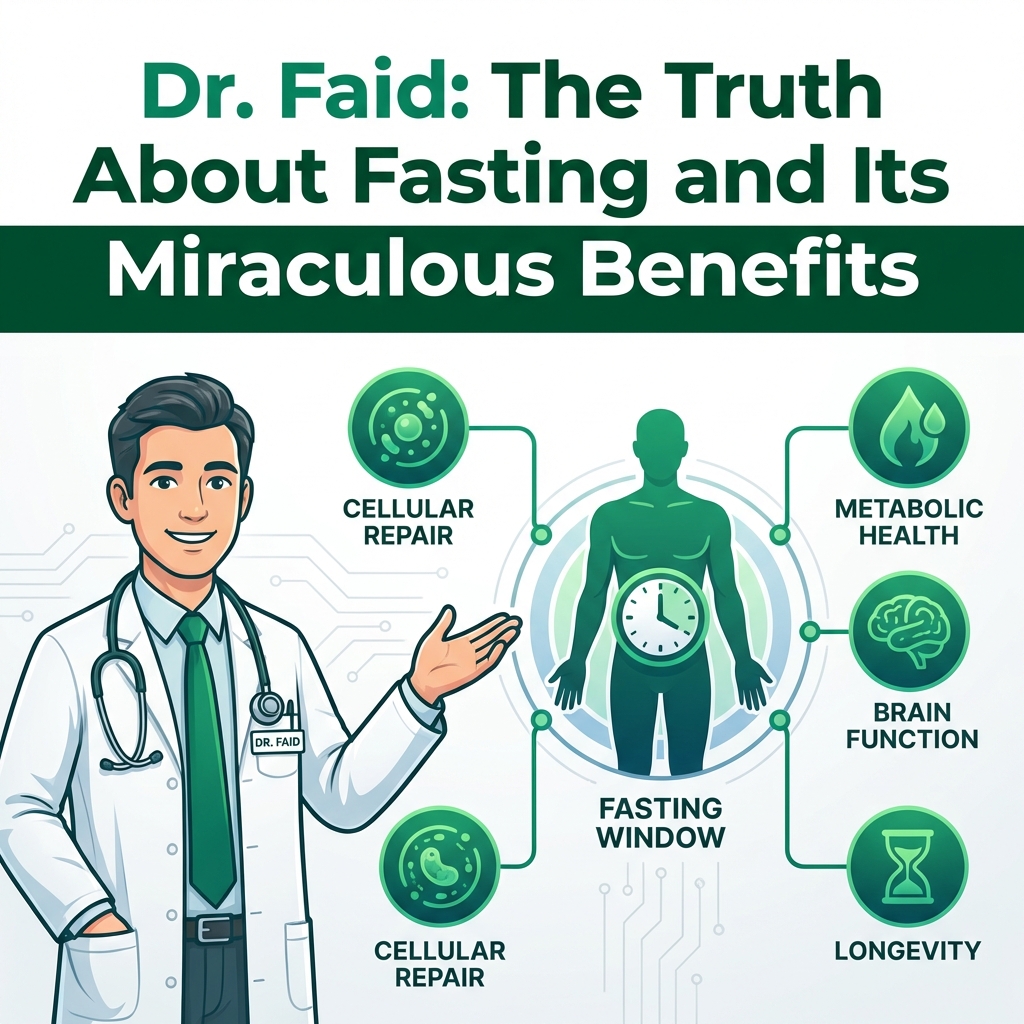Introduction
In this video, Dr. Mohamed Faid, a prominent Moroccan food science and nutrition expert, discusses his perspective on cancer. He argues that understanding and treating cancer requires a holistic approach that goes far beyond conventional treatments alone, emphasizing the critical roles of psychological well-being, lifestyle, and nutrition. This commentary will explore his key points, supported by scientific research and cultural parallels.
The Psychological Battle: Fear vs. Resilience
Dr. Faid begins by stating that the fear surrounding a cancer diagnosis is often more destructive than the disease itself. He observes that this fear can cause patients to become overwhelmed and mentally paralyzed, hindering their ability to take proactive steps. According to him, a positive and resilient mental state is a cornerstone of any effective cancer treatment plan. He notes that in Western countries, psychological support is a standard part of cancer care.
Scientific Context: This field, known as psycho-oncology, studies the impact of psychology on cancer. Research confirms that chronic stress can negatively affect the immune system and may influence cancer progression. A 2019 review in Cancer Treatment and Research Communications highlights how psychological interventions can improve quality of life and coping mechanisms in patients, which are crucial for enduring rigorous treatments (https://www.sciencedirect.com/journal/cancer-treatment-and-research-communications).
The “Pre-Cancer” Stage: Early Warning Signs
Dr. Faid introduces the concept of a “pre-cancer” stage, a critical period where the body shows warning signs before a tumor becomes detectable. He argues that addressing these signs can prevent the disease from developing.
-
Prostate Enlargement (BPH): He suggests that benign prostatic hyperplasia, if left unmanaged over years, can eventually evolve into prostate cancer. Scientific Context: While BPH is not considered a direct precursor to prostate cancer, they share risk factors, and chronic inflammation associated with BPH may contribute to a higher risk. A 2018 meta-analysis in The Prostate found a significant association between BPH and the subsequent risk of developing prostate cancer (https://onlinelibrary.wiley.com/doi/full/10.1002/pros.23492).
-
Blood Abnormalities: Persistent issues like severe anemia or fluctuating platelet and white blood cell counts could be early indicators of blood cancers like leukemia. Scientific Context: Conditions known as myelodysplastic syndromes (MDS) are often referred to as “pre-leukemia.” In MDS, the bone marrow produces abnormal blood cells, and it can progress to acute myeloid leukemia (AML) in about one-third of cases.
-
Enzyme Markers: Dr. Faid points to elevated levels of certain enzymes (like Lipase, Amylase, Aldolase, PSA) as potential early biochemical flags for cancer, even before a tumor is visible. Scientific Context: These are known as tumor markers. While they can indicate the presence of cancer, they can also be elevated due to other non-cancerous conditions. They are primarily used for screening high-risk populations and monitoring treatment effectiveness rather than for definitive diagnosis alone.
The “Post-Cancer” Stage: The Danger of Recurrence
A powerful point Dr. Faid makes is about life after treatment. He asserts that if a patient is declared “cancer-free” but returns to the same lifestyle and diet that contributed to the disease initially, recurrence is almost inevitable. He challenges the notion of a permanent cure without a permanent change in habits.
Scientific Context: Lifestyle factors are strongly linked to cancer recurrence. The American Cancer Society emphasizes that maintaining a healthy weight, being physically active, and eating a nutrient-dense diet after treatment can significantly improve long-term health outcomes and may lower the risk of recurrence for several types of cancer.
The Power of Diet and Natural Compounds
Dr. Faid is a staunch advocate for using nutrition as a primary tool in the fight against cancer. He criticizes the reliance on chemotherapy and surgery without addressing the root causes, which he believes are largely dietary.
He categorizes foods into two groups: those for energy (carbohydrates, proteins) and those for healing. He focuses on three “healing” groups:
- Spices: Such as turmeric, cinnamon, cloves, and nutmeg.
- Herbs: Such as thyme and oregano.
- Seeds: Including fenugreek, caraway, and black seed (Nigella sativa).
Scientific Context: These food groups are rich in phytochemicals, which have demonstrated anti-cancer properties in numerous studies.
- Turmeric (Curcumin): A 2019 review in Nutrients summarizes extensive in-vitro and animal research showing curcumin’s ability to inhibit cancer cell growth and induce apoptosis (cell death) (https://www.mdpi.com/2072-6643/11/10/2478).
- Thyme (Thymol): Studies, like one in Molecules (2020), show that thymol, an active compound in thyme, has antioxidant and anti-inflammatory effects and can inhibit the proliferation of various cancer cell lines in laboratory settings (https://www.mdpi.com/1420-3049/25/5/1077).
- Black Seed (Thymoquinone): Thymoquinone has been the subject of hundreds of studies. A 2019 review in OncoTargets and Therapy details its potential to target cancer pathways, though most evidence comes from pre-clinical (in-vitro and animal) studies (https://www.dovepress.com/thymoquinone-a-promising-natural-compound-with-potential-benefits-for–peer-reviewed-fulltext-article-OTT).
Cultural Parallels: The use of these spices and herbs for medicinal purposes is a cornerstone of traditional systems like Ayurveda in India and Traditional Chinese Medicine (TCM), where food is considered medicine to maintain balance and prevent disease.
Propolis: Nature’s Potent Healer
Dr. Faid places special emphasis on propolis (bee glue), calling it one of the most powerful natural anti-cancer substances. He expresses frustration that its use is sometimes discouraged.
Scientific Context: Propolis is rich in bioactive compounds, notably Caffeic Acid Phenethyl Ester (CAPE). A large body of pre-clinical research, summarized in a 2017 review in the Journal of Dietary Supplements, shows that propolis extracts can inhibit tumor growth and enhance the effects of chemotherapy in animal models (https://www.tandfonline.com/doi/full/10.1080/19390211.2017.1324237). However, human clinical trials are still needed to confirm its efficacy as a treatment.
Conclusion: A Call for Patient Empowerment
Dr. Faid’s core message is one of empowerment and personal responsibility. He argues that the patient must be the primary agent in their own healing journey. This involves:
- Overcoming fear and adopting a resilient mindset.
- Recognizing and acting on pre-cancerous warning signs.
- Adopting a permanent anti-inflammatory, nutrient-dense diet rich in spices, herbs, and beneficial seeds.
- Not relying solely on conventional treatments but integrating them with a fundamentally healthy lifestyle.
- Doing your own research and taking an active, not passive, role in your treatment.
He believes that true healing comes not from a magic pill or a pre-made formula, but from fundamentally changing the internal and external environment that allowed cancer to develop in the first place.

